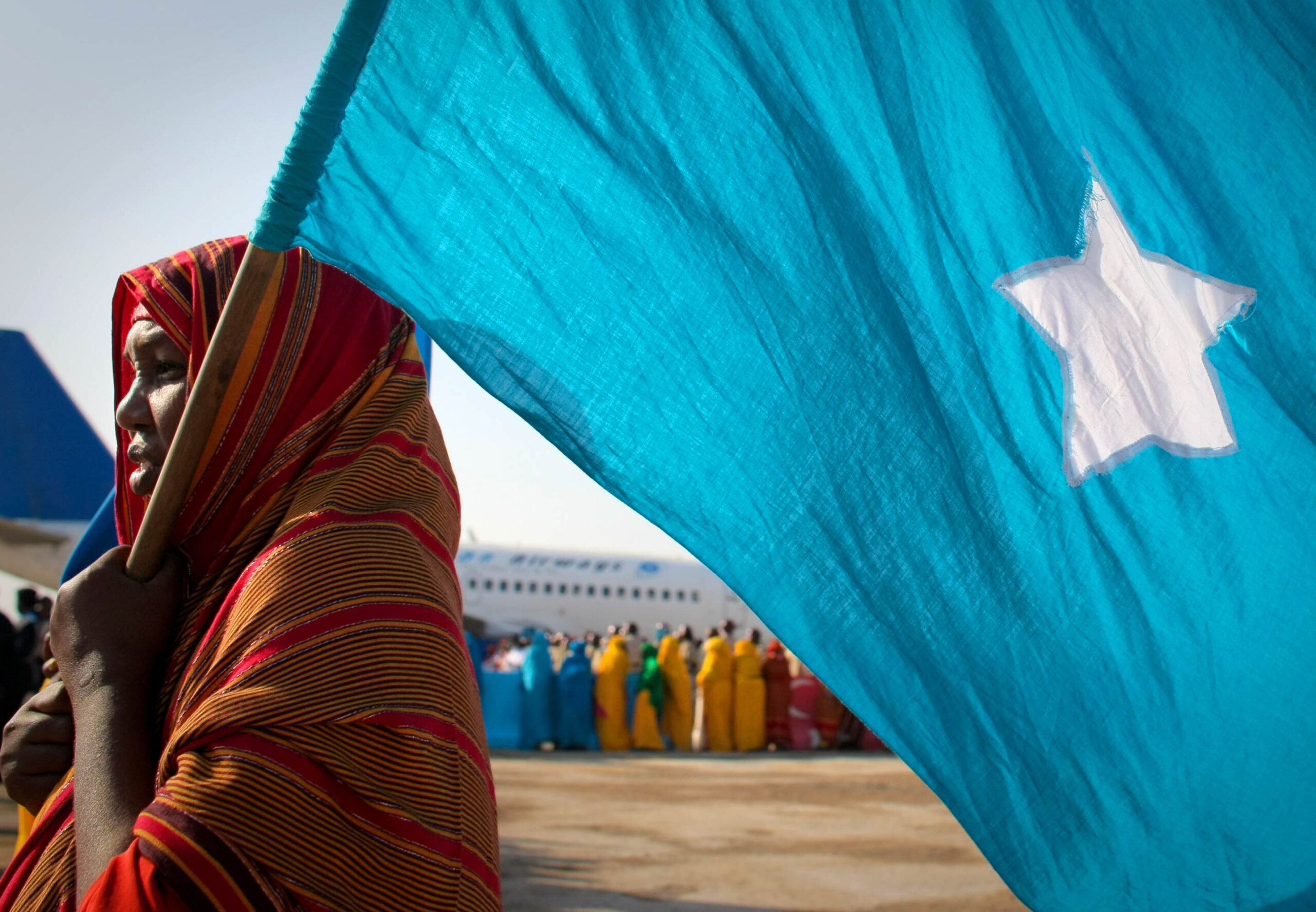
Reconciliation and justice in Somalia: lessons from global examples
Somalia is currently undergoing a profound social and political transition. The formation of the Federal Government of Somalia, in 2012, marked a step towards stability, and the country has initiated a federalisation process aimed at reducing violent conflict and fostering economic development. Reconciliation and justice, including accountability for human rights violations, are key components of this transition, recognized in the 2012 provisional constitution, which provides for the establishment of a Truth and Reconciliation Commission (under Article 111i). However, this commission has yet to be established, and numerous obstacles remain, including the continued political violence and the alarming deterioration of the climate crisis.
The complex history of injustices in Somalia
Somalia’s current struggles with reconciliation and justice are deeply rooted in its history of ancient trade, medieval empires, and colonial partition. Traditionally characterised by nomadic and agricultural pastoralism, Somali society was disrupted by European colonial powers in the late 19th century. In particular, Italy’s colonial rule imposed harsh control and exploitation, leaving a legacy of division and resentment.
The post-independence regime of Mohamed Siad Barre, who came to power through a military coup in 1969, created a new layer of injustices: Barre’s authoritarian regime led, in fact, to severe human rights abuses and clan favouritism, igniting a civil war upon his overthrow in 1991. The subsequent power vacuum saw rival clans and warlords vie for control, causing widespread chaos and humanitarian crises. International interventions launched since the early 1990’s largely failed to restore peace, and often exacerbated political divisions.
Over the past thirty years, a rise in violent extremism and a devastating famine have caused yet another wave of violations, which were accompanied by the collapse of state institutions, and people’s trust in government. Over this period there have been attempts to forge reconciliation and bring justice, usually through internationally backed conferences, but this pursuit remains elusive.
In response to these challenges, a National Reconciliation Framework was established in 2019, after public consultations, outlining five pillars of work to promote reconciliation. Pillar II is dedicated to addressing historical issues in particular, and thus acknowledges the need to address violations and injustices related to the pre-civil war period This pillar, however, still lacks a concrete strategy and implementation mechanism.
Reconciliation, justice and colonial responsibilities
Various scholars (see Angelo Del Boca and Antonio M. Morone, among others) are working to bring Italy’s role as a predatory European colonial power into the broader discourse on international justice, similar to what has started to happen in France and the United Kingdom. Key to this discourse is the question of whether it is appropriate to discuss colonial responsibilities and how they might be repaired. It is thus necessary to ascertain the extent of the wounds that a society suffered, and must heal, in order to overcome a conflict situation.
Reconciliation and transitional justice have emerged as important concepts for answering such questions. Both are considered to be important processes in post-authoritarian and post-conflict settings, but they have different goals and use different strategies. While transitional justice concentrates on accountability and justice for past wrongdoings, reconciliation tries to rebuild relationships and advance societal healing. These procedures serve various purposes within the broader framework of conflict resolution and peacebuilding, but they are frequently interconnected, since acknowledging historical injustices can be a step toward reconciliation.
In the case of Somalia, where both reconciliation and justice are important, a more pertinent question to pose is: what injustices must be addressed for a community, or even Somali society, to progress towards peace?
Here it might be useful to make a distinction between two broad categories of “historical injustices”. The first category is that of “internal” injustice, in which former adversaries are compelled to co-exist within the same political community, frequently in close proximity. The second category is that of “external” injustice, which pertains to the relationships between distinct communities that are separate sovereign entities. In this case, despite the proximity of their respective locations, a distinct division can be made exists between the former victims and perpetrators.
One illustrative case is that of the Republic of Korea, which illustrates how a nation successfully navigated a complex history of multiple injustices to build a more stable and just future. In a world where colonial issues are predominantly viewed through a Eurocentric lens, South Korea’s experience also offers valuable insights into the processes of liberation, recognition, apology and reparations for crimes committed by a colonising country. Furthermore, it demonstrates the extent to which a country’s historical trauma can span back in time, necessitating repair on both internal and external fronts. For all these reasons, the case of South Korea can offer a valuable comparative framework for Somalia.
The experience of the Republic of Korea shows that a country can achieve reconciliation by addressing both internal and external injustices. At the internal level, South Korea has addressed violations made before the country’s transition to democracy, including the acknowledgment and redress of atrocities committed during the so-called May 18 Democratisation Movement in Kwangju, in 1980.
Externally, Korea has been reassessing historical injustices, particularly those related to its colonial past under Japanese rule (1910-45), such as the issues of comfort women and girls, who were forced into sexual slavery by the Japanese Armed Forces during World War II, and forced labour. In the 1990’s, following extensive historical research and testimonies from survivors, Japan began to acknowledge its responsibility, and offer compensation to victims.
This South Korea example also illustrates the need for a victim-centred reparations process: it is individual claims that prompted the addressing and compensating of colonial injustices at the interstate level.
Options for advancing reconciliation and justice in Somalia
Somalia, much like South Korea, has suffered from both internal and external injustices. Clan-based conflicts, warlordism, and political instability have been the main causes of internal injustices. Externally, the legacies of colonialism and subsequent Cold War interventions have also created victims, directly and indirectly. Nevertheless, certain wounds cannot be easily categorised as either internal or external.
Transitional justice in Somalia should therefore consider how colonial dynamics contributed to current conflicts. Efforts so far have concentrated on addressing the violence that occurred subsequent to the collapse of the Barre regime and the conclusion of the civil war, without examining the manner in which colonial dynamics contributed to creating the conditions for such violence in the first place. In Somalia, however, external historical injustices may contribute to ongoing internal injustices. In this regard, it is crucial for former European colonisers to critically examine the colonial period, the decolonization process, and subsequent peacebuilding interventions.
At the same time, it is imperative for European countries to acknowledge that a solution cannot be provided to Somalia. Action or measures to expiate past wrongdoings would merely perpetuate the same colonial logic of the past. Instead, facilitating peaceful progress requires confronting collective guilt and recognizing the potential for positive change. Any initiatives undertaken must be victim-centred, ensuring that the needs and voices of those affected are prioritised in the process of reconciliation and justice.
On the Italian side, supporting Somalia’s transition should therefore require the country to abandon the persistent myth of “good” colonialism and historical reluctance to confront its past, which hinder the development of a mature civic consciousness regarding the damages caused by colonial domination. The objective is to challenge and ultimately dismantle, as Del Boca has extensively endeavoured to do, the stereotypical portrayal of Italians as inherently “brava gente” (“good-hearted people”). A comprehensive re-evaluation of the modus operandi of Somalia-Italy cooperation may then prove to be a necessary, and welcome, consequence of this approach.































